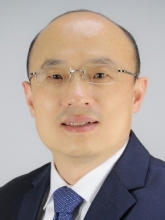MAE Seminar: Personalized Vehicle Control for Energy Efficiency and Driving Safety Enhancements

SAE Fellow | ASME Fellow
Accenture Endowed Professor
Walker Department of Mechanical Engineering
University of Texas at Austin
Abstract: Recent advances in vehicle onboard computation and communication technologies have led ground transportation into a new era. In particular, smart mobility technologies such as vehicle-to-vehicle, vehicle-to-infrastructure and vehicle-to-human communications have offered unprecedented information richness and availability, which if utilized intelligently, may enable substantial improvements in vehicle operational energy efficiency and driving safety, which are of societal importance. Synergistic combinations of physical insights into vehicle system characteristics, computational and communication capabilities, human driver modeling, and theories of optimization and control may offer effective means for tackling transportation safety and energy challenges. This talk introduces a variety of smart vehicle system estimation and control research activities that aim to improve safe and efficient ground transportation by enabling optimally personalized vehicle control. Innovative syntheses of estimation, optimization and control theories with physical understanding of vehicle, human and transportation systems for conventional, electrified, connected and automated vehicles will be emphasized through examples. Along with system analytical designs, experimental and simulation results will be given to demonstrate the importance and efficacy of personalized vehicle technologies for current and future ground vehicles and transportation.
Bio: Junmin Wang is the Accenture Endowed Professor in Mechanical Engineering at University of Texas at Austin. In 2008, he started his academic career at Ohio State University, where he founded the Vehicle Systems and Control Laboratory, and was promoted early to associate professor in September 2013 and then to full professor in June 2016. He also gained five years of full-time industrial research experience at Southwest Research Institute (San Antonio Texas) from 2003 to 2008. Wang has a wide range of research interests covering control, modeling, estimation, optimization and diagnosis of dynamical systems, especially for automotive, smart and sustainable mobility, and human-machine and cyber-physical system applications. He is the author or co-author of more than 300 peer-reviewed publications including 148 journal articles and 13 U.S. patents. Wang is a recipient of numerous international and national honors and awards including the 2018 IEEE Andrew P. Sage Best Transactions Paper Award, 2017 IEEE Transactions on Fuzzy Systems Outstanding Paper Award, 2012 NSF CAREER Award, 2011 SAE International Vincent Bendix Automotive Electronics Engineering Award and the 2009 ONR-YIP Award. He is an IEEE Vehicular Technology Society Distinguished Lecturer, and a fellow of SAE and ASME. Wang received the B.E. in automotive engineering and his first M.S. in power machinery and engineering from the Tsinghua University, Beijing, China, in 1997 and 2000, respectively. He earned his second and third M.S. degrees in electrical engineering and mechanical engineering from the University of Minnesota, Twin Cities in 2003, and a Ph.D. degree in mechanical engineering from the University of Texas at Austin in 2007.
Share
Upcoming Events
-
MSE 298 Seminar: Catalyst Design For Clean Energy Technologies
-
MAE 298 SEMINAR: Biomechanics of Rotator Cuff
-
CBE 298 Seminar: Micro- and Nanofluidic Systems for Molecular Biosensing, Nanotoxicity, and Optogenetics
-
MSE Special Seminar: Architecting 3D Complex Materials for Sustainability
-
MSE Special Seminar: Decarbonizing Industries for a Climate-resilient Future - From Renewable Energy to Sustainable Material Recovery
